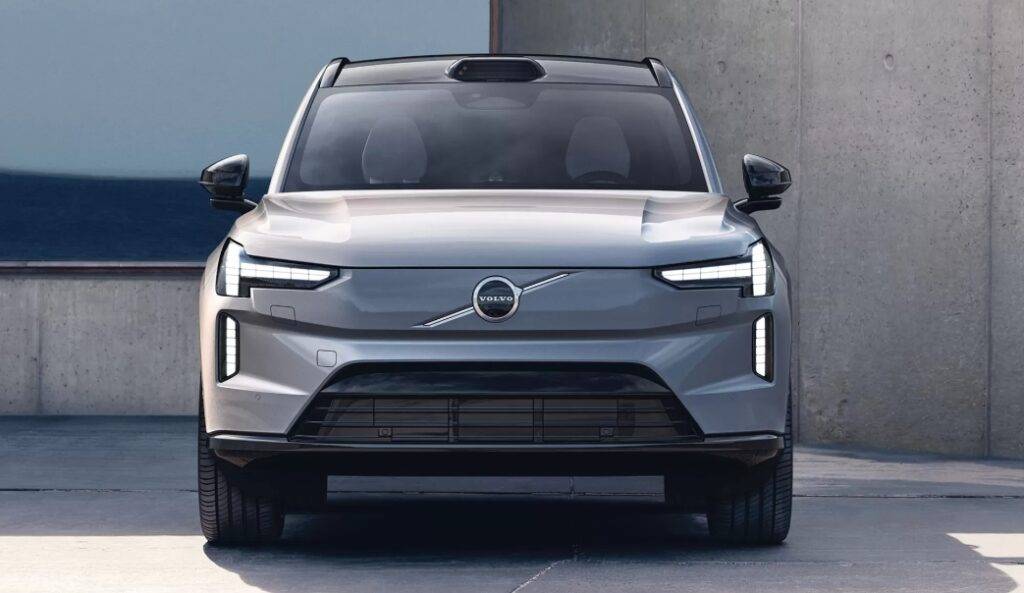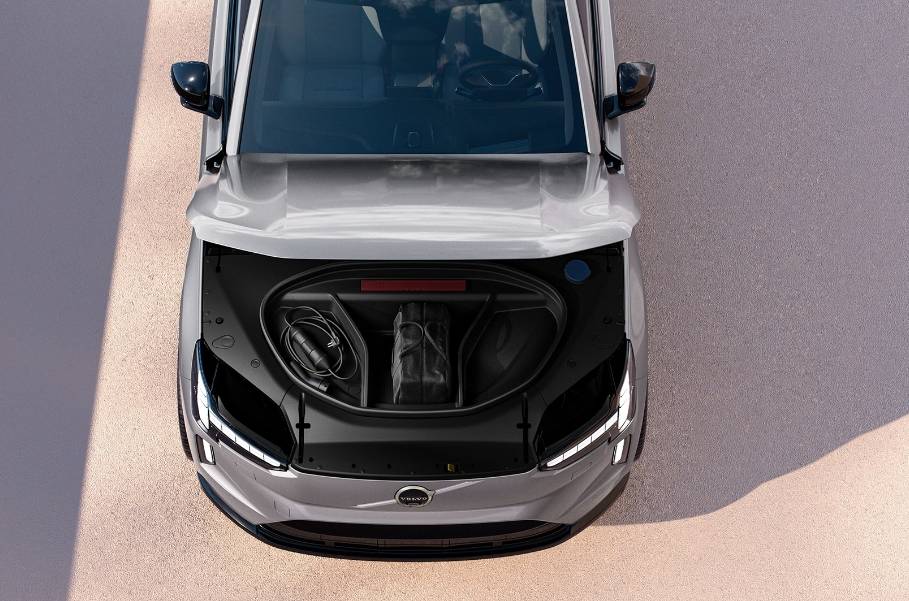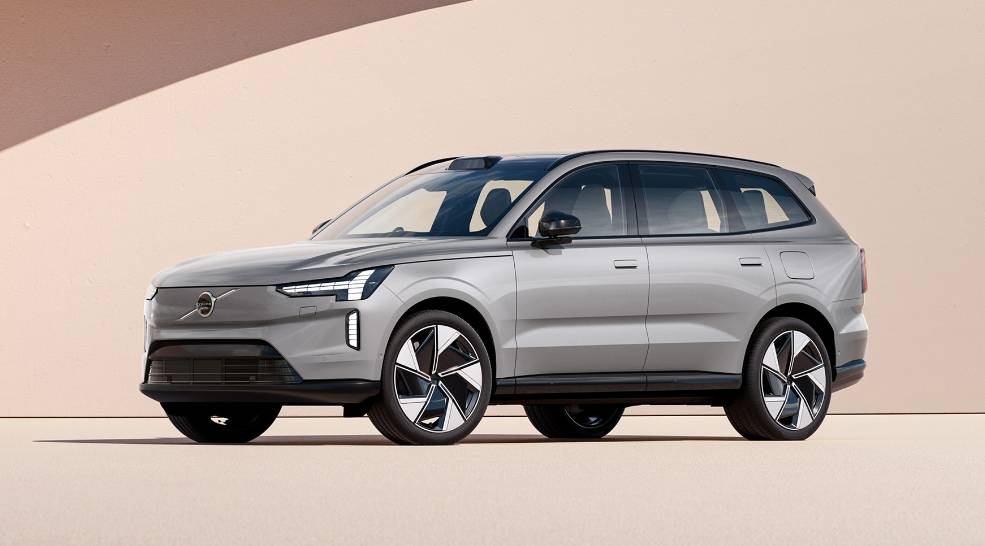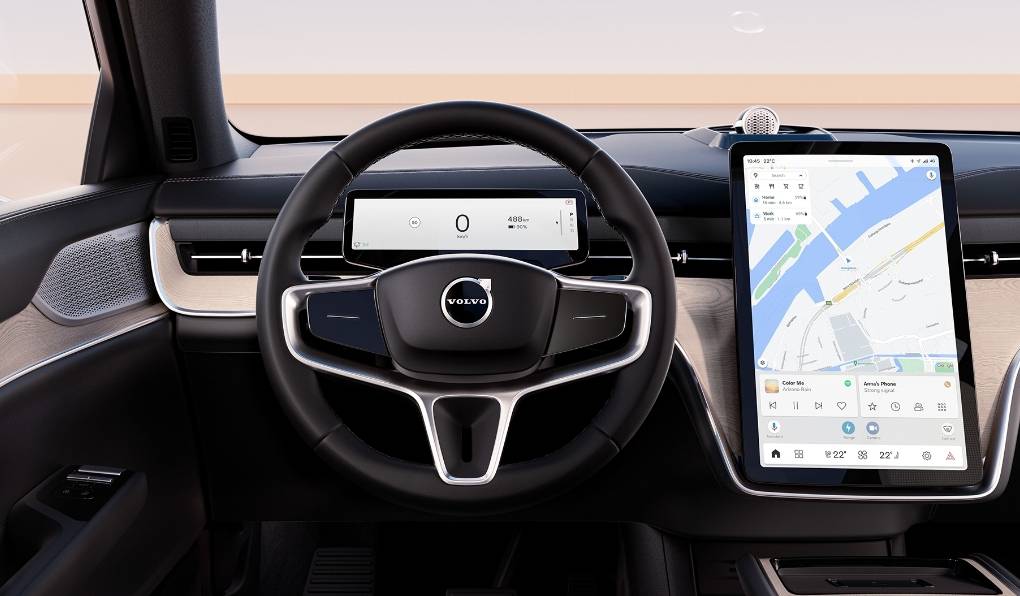280 trillion operations per second for the electric Volvo EX90

Volvo called on NVIDIA to create an artificial intelligence capable of compiling 280 trillion operations per second.
Volvo is preparing an all-new electric SUV, planned for us in 2024, which will be assembled alongside its mechanical twin, the Polestar 3, at the Volvo plant in South Carolina.
During the static presentation of the EX90, Volvo filled our brains with the subject of sensors, lidars, autonomous technologies and artificial intelligence, without showing us what all of this could do. Until then, it sounded like the same gibberish of all the other automakers these days: “Look at all this great technology that will allow us to inflate the vehicle bill!»
No need to convince you that none of this impressed, until a technical information caught attention. Volvo mentioned that the EX90 would be equipped with a microprocessor capable of compiling up to 280 trillion operations per second. To put it into perspective, the human brain can only compile about 1,000 of them.
Now owned by the Chinese giant Geely, but proudly Swedish because of its still well-established headquarters in Gothenburg – where the manufacturer’s vehicles are developed and tested – Volvo has never liked to do things like the others.
Orbiting somewhere between German and Asian luxury brands, Volvo has long stood out from the competition with its purely Scandinavian approach, meaning that it markets vehicles that are better suited to winter conditions than others, vehicles that are drawn in a minimalist design language and, above all, obsessed with safety.
Volvo has a few safety innovations to its credit, such as the three-point seat belt, the impact absorption zones, the rear-mounted child seat, the side airbag, the blind spots, pedestrian detection, or collision prevention following loss of control. Over a period of 75 years, Volvo has patented no less than 16 safety innovations!

The intelligent car, which learns faster than humans
Today, modern technologies and connectivity in vehicles allow all automakers to develop their own safety technologies, to the point where we almost lose our minds.
Every manufacturer boasts of having invented the latest wonder of the world, and everyone would like to be the first to offer a fully autonomous car. Tesla seems to have a good head start on the competition in this regard, while General Motors is slowly but surely advancing with the Super Cruise mapped system, in particular.
How does Volvo, this pioneer in road safety, intend to stand out from the competition today who are just as conscientious about protecting their occupants? By creating what it calls a “security shield” around an intelligent vehicle that adapts to its environment and its owner, while evolving over time. At least that’s what Volvo says. Ambitious, of course.
To achieve its ends, Volvo, unlike Tesla which only believes in a camera system, is betting more than ever on lidar. Unlike radar, which uses radio frequency to send and receive a signal, lidar instead uses light to map its surroundings in three dimensions.
Volvo has also called on the company Luminar to install a gigantic lidar on the roof of the EX90 which, with the help of 5 other radars, 8 cameras and 16 sensors, manages the environment in real time. of the vehicle in order to predict, avoid or even steer clear of a possible collision.
But what’s even more fascinating about this technology – and a little unsettling – is the brains behind it. In partnership with NVIDIA, Volvo has developed the Drive Orin microprocessor, a form of artificial intelligence capable of assimilating trillions of operations in a fraction of a second, always with the aim, according to Volvo, of creating the safest car in the world.

Now, what does all this bring to the consumer?
We can expect a highly intelligent vehicle that will adapt to your habits while learning more about you over time. What artificial intelligence will bring to the vehicles of tomorrow is the possibility of interacting with its owner, responding to voice commands, modifying or even facilitating its movements by anticipating what is to come.
For example, the EX90 could record the times when you go to walk your dog, to finally ask you if you forgot to walk it in the event of a morning when the dog is not in the vehicle.
But Volvo intends to push the technology even further with autonomous driving. The ambitious manufacturer says it wants to get rid of current levels of autonomy and allow the vehicle’s artificial intelligence to adapt over time, improving its autonomous driving along the way.
Volvo testifies that the NVIDIA Drive Orin processor is currently on the test bench on Swedish roads. What was explained on the sidelines of the presentation is that the engineers are already impressed by the learning speed of the system, which already performs a host of maneuvers in urban situations without the involvement of the driver.

Data and more data
This is all well and good and honestly quite fascinating, but what should be remembered about the smart car of tomorrow is that it will act above all as a data collection tool for manufacturers.
More than ever, motorists will be tracked down, observed, listened to and will serve as a guinea pig so that they are sold more technologies. In the case of automobiles, these will be additional features, purchased through a monthly subscription. Because yes, that too is the future.
At the time of this writing, there is no concrete law to prevent an automaker from amassing a motorist’s data and then compiling and analyzing it, other than the consent of the owner per se, which, too often agrees to terms without actually understanding them.
If, for now, the collection of data is only for the purpose of improving vehicles, it could suddenly change without notice and be sold to third-party companies, in particular.
The Office of the Privacy Commissioner of Canada is currently looking into the subject, because it believes that the collection of information in cars should not be treated in the same way as electronic devices. Specific laws related to the automobile market will have to be put in place quickly to protect the privacy of motorists. Because even if Volvo promises to design the safest SUV on the market, your privacy may not be adequately protected.
